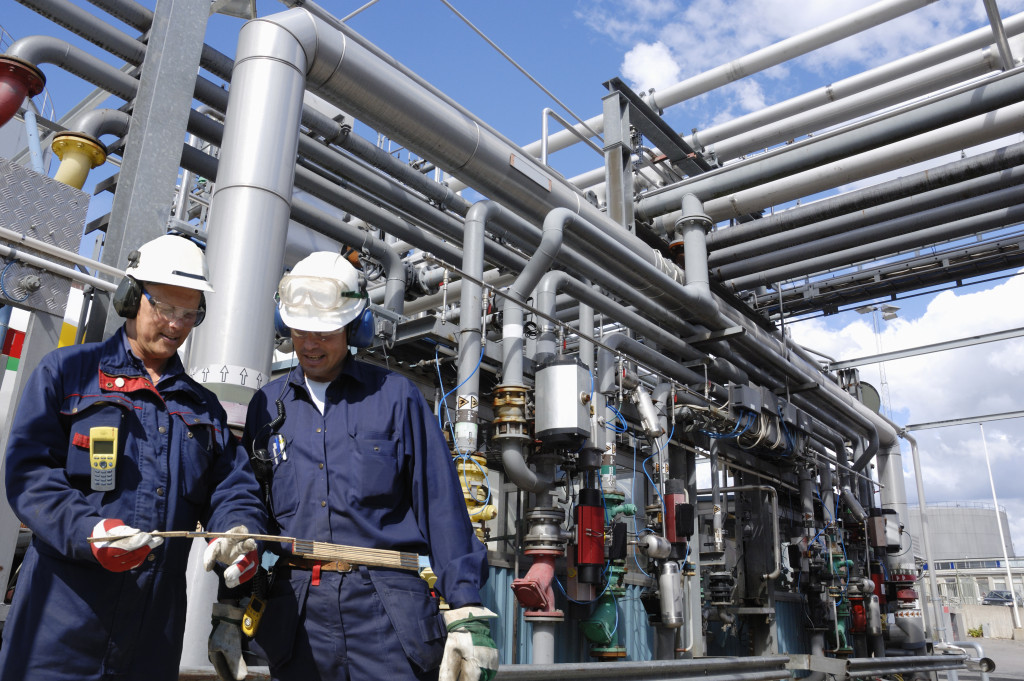- Quality assurance processes to ensure customer specifications and standards are met.
- Cost control measures to maximize efficiency and minimize production costs.
- Regular equipment maintenance to prevent breakdowns and emergency repairs.
- Waste management procedures, such as recycling materials and proper disposal of hazardous waste.
- Employee training and development programs to enrich employee skills and bolster efficiency.
Managing a manufacturing factory requires keen attention to detail, exceptional organizational skills, and an unwavering commitment to excellence. As an entrepreneur or business owner who operates a manufacturing plant, your responsibility is to ensure that your factory is efficient, meets production targets, and turns in an excellent ROI. Here are some critical factors you need to consider when managing a manufacturing factory.
Quality Assurance
As a factory boss, you understand the importance of meeting clients’ expectations with quality products or services. Putting a quality assurance team in place helps to scrutinize and test products to ensure that they meet quality standards and customer specifications. Incorporating quality assurances with proactive measures in processes helps you to detect or eliminate defects during manufacturing and reduce waste materials on completed products that fall below the required quality. Here are some things you can focus on:
Cost Control
Efficient management of your manufacturing factory requires diligent cost control. This means ensuring that everything is put in place to promote cost-effectiveness, financial efficiency, and economical use of company resources. Monitor production overheads and materials costs, eliminate waste, and make conscious cost-saving decisions. This ensures that the company stays within budget, minimizes production costs, and maximizes profits and efficiency.
Equipment Maintenance
The equipment used in manufacturing factories is the backbone of the production process. Without these machines, it is impossible to achieve optimal production output. One of the factors you must consider in managing a manufacturing factory is equipment maintenance.
You must ensure that all equipment is well-maintained to prevent frequent breakdowns and the need for emergency repairs. Regular maintenance is not only cost-effective but also prolongs the lifespan of your factory equipment. Train your employees about the importance of proper equipment usage, handling, and maintenance to reduce equipment damage and ensure safety.
Time Management
Time management is a crucial factor to consider when managing your manufacturing factory. Time is money, and inefficient time management can lead to a waste of company resources, customer dissatisfaction, and a reduction in workflow productivity. Create a critical timeline to time-frame your production process and forecast the required lead time to complete orders.

Waste Management
Another factor to consider in managing a manufacturing factory is waste management. Manufacturing processes inevitably generate some sort of waste, be it physical, chemical, or hazardous. To reduce environmental pollution and comply with laws and regulations on waste disposal, proper management of industrial wastes must be taken into account. Here are some measures to adopt:
Recycling of Waste Materials
Recycling of waste materials is an essential aspect of managing a manufacturing factory. Not only does it help to reduce the environmental impact of production, it also helps to minimize operational costs.
By implementing an effective recycling program, businesses can reduce their dependence on raw materials and save money in the long run. Additionally, the recycling process helps to promote sustainability and more control over the quality of production.
Proper Disposal of Hazardous Waste
Hazardous waste materials must be handled with care and disposed of properly to protect workers, the environment, and your business’s reputation. Ensure that all hazardous wastes from your facility are stored safely in designated areas and disposed of responsibly according to federal regulations.
Regular Septic Tank Pumping
Regular septic tank pumping is also essential to managing a manufacturing factory. Investing in efficient septic tank pumpers helps to prevent overflows, clogs, and other costly repair issues. To ensure the longevity of your machines and protect your facility from hazardous chemicals, invest in regularly scheduled pumping services.

Employee Training and Growth
Your manufacturer’s productivity is dependent on your employees’ efficiency, skills, and understanding of the production process. It’s essential to invest in employee training, seminars, workshops, and mentoring.
This helps them to grow and improve their skills, knowledge, and expertise in their respective roles. As they discover more efficient techniques and technologies, they can streamline the production process, increase output levels and achieve better results.
Encourage cross-training of team members so that they can fill in for one another when employees call in sick or take vacations.
Managing a manufacturing factory requires a plethora of skills, expertise, and knowledge in production line management, safety, quality control, and time management. Implementing best practices provides a framework that streamlines processes, enables cost control, and bolsters employee efficiency. A well-managed manufacturing factory helps achieve business goals, enhances productivity, and ensures you meet your customers’ needs, which in turn equates to business success.

